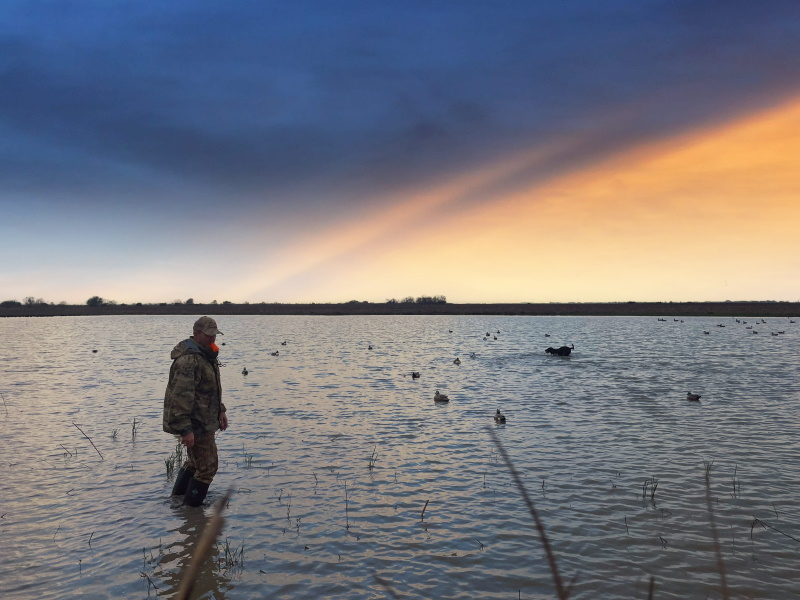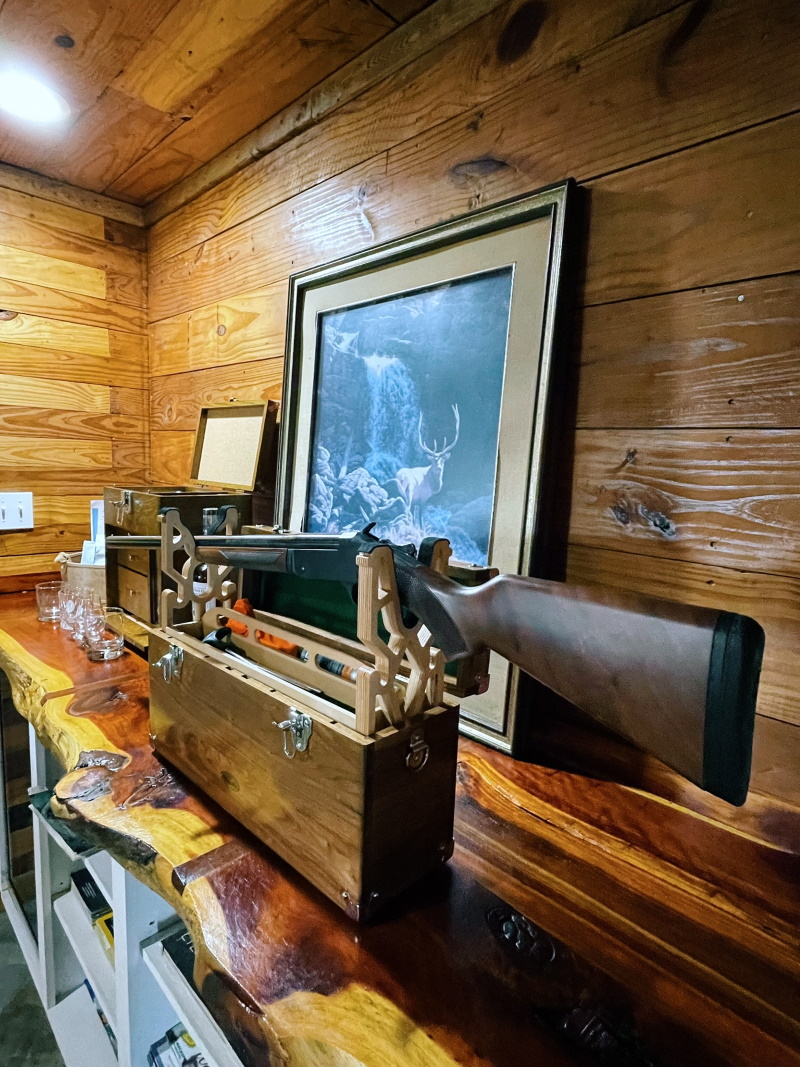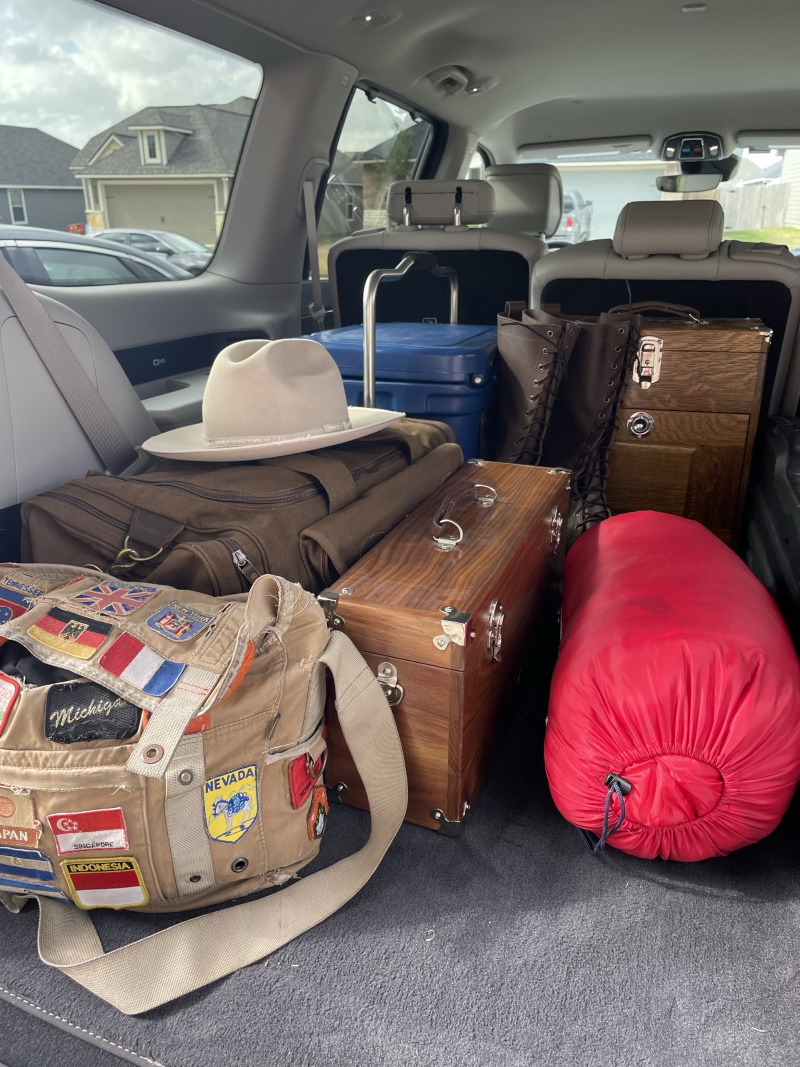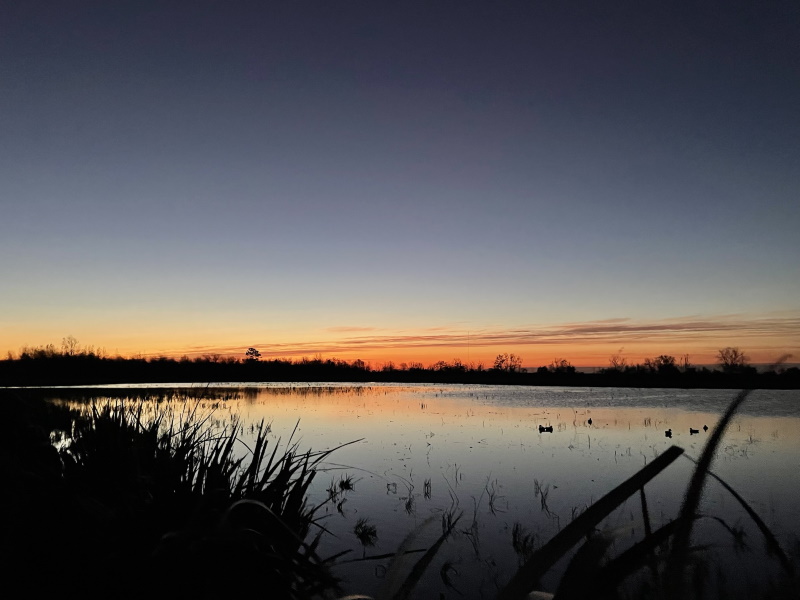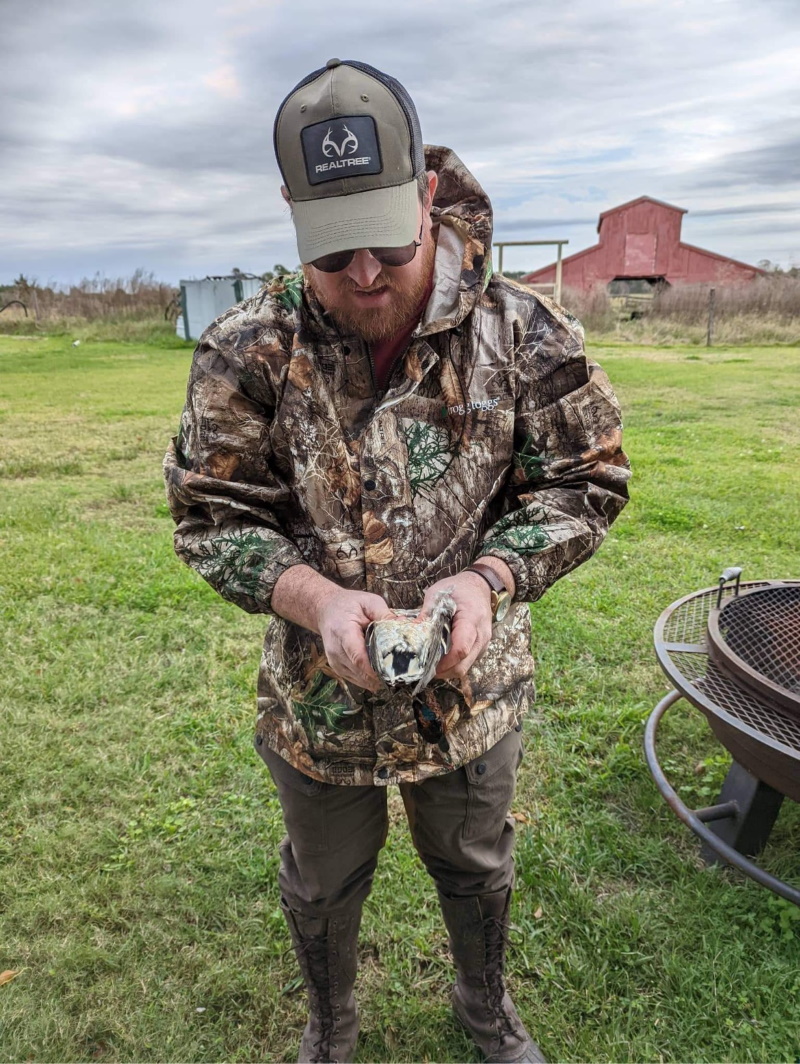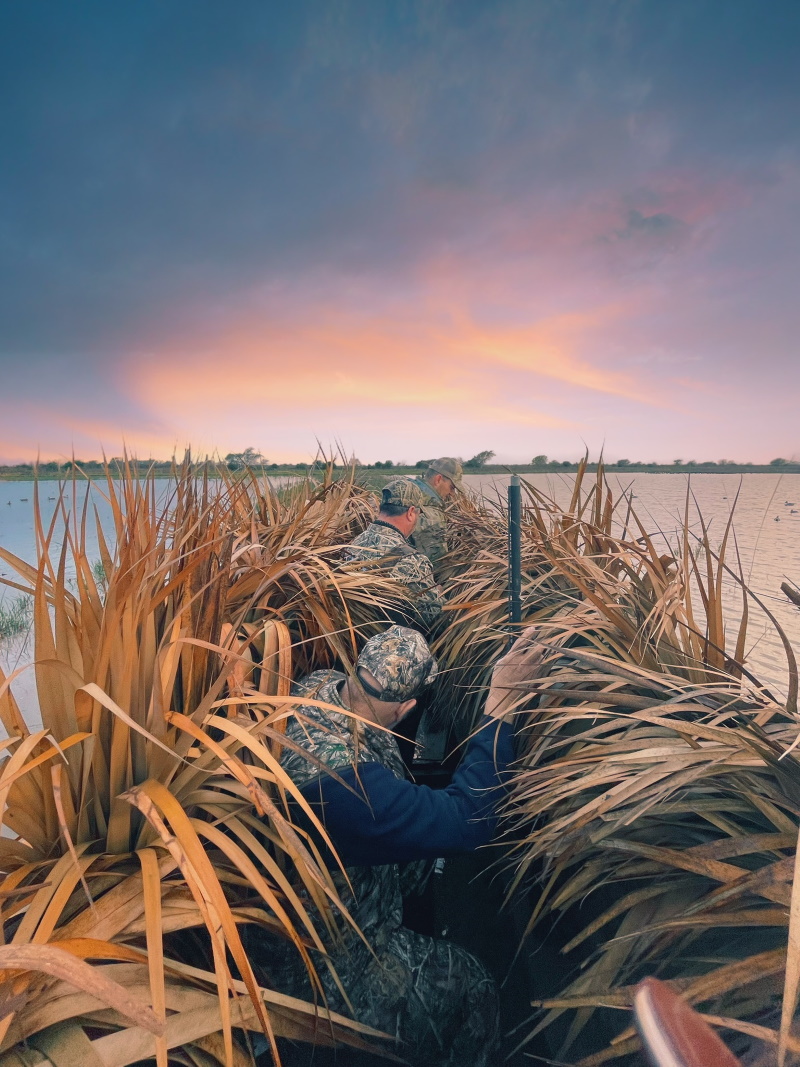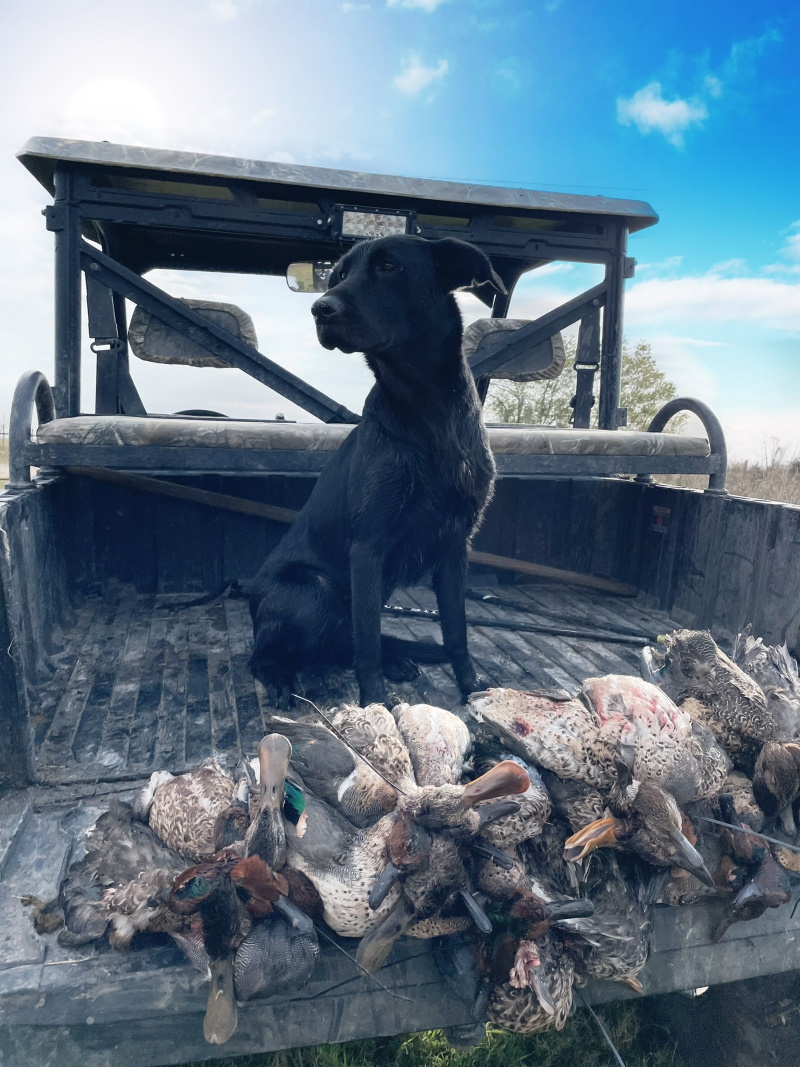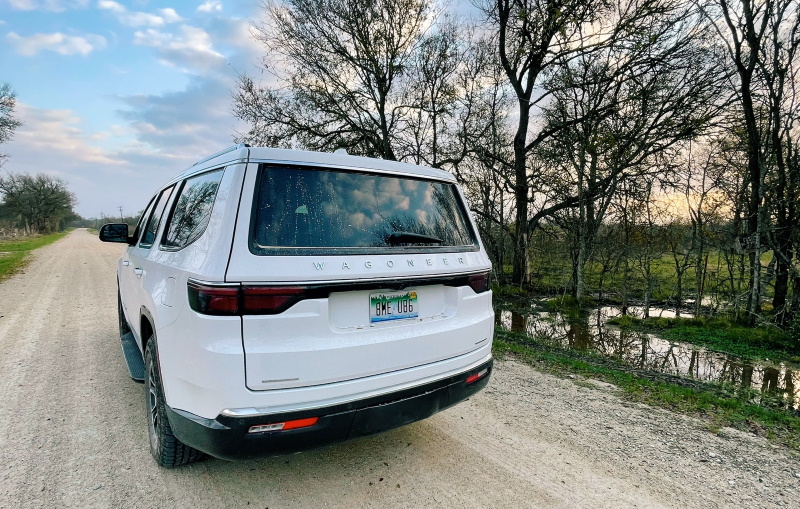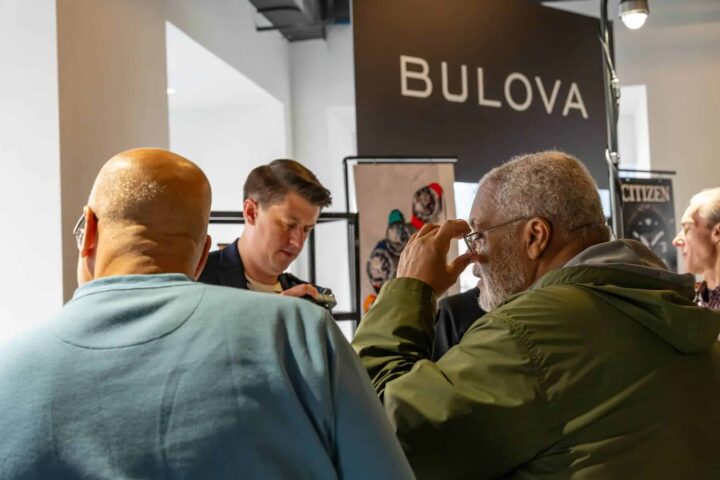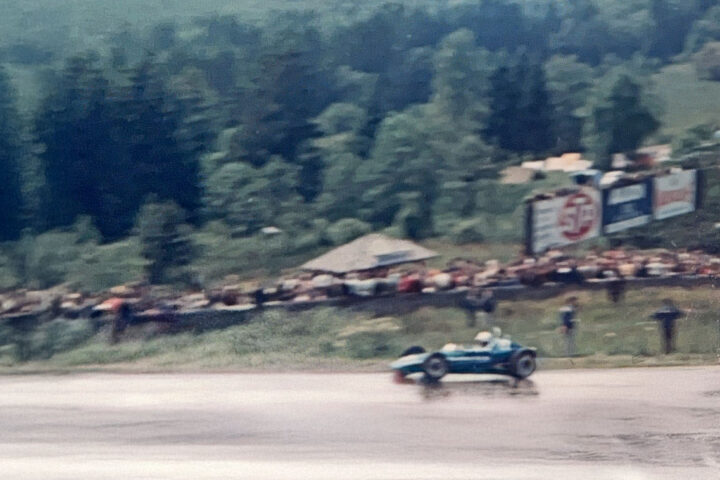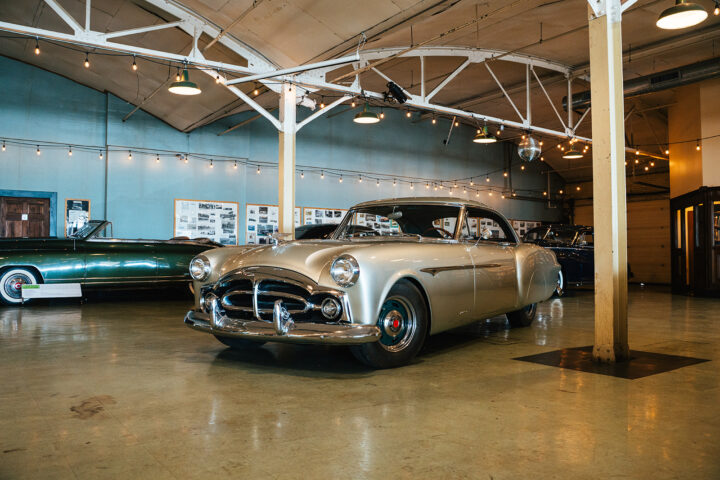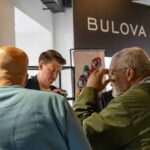A few years ago, I would never have imagined that I would find myself invited on a Gulf Coast duck hunt; even though I grew up in a more rural part of Southern California on a small ranch, hunting wasn’t an activity that my family or our friends really took part in. I had the seldom-seen uncle who would go on hunting trips, and I would often go shooting in Boy Scouts or at the Olympic shooting park just a few miles away, but the Southern California suburbs that surrounded our agricultural preserve weren’t teeming with game.
But then I moved to Texas, and while I had never been hunting, I always had an affinity for classic hunting gear, clothing, and firearms. So when a lodge brother invited me on a guided waterfowl hunt on the Gulf Coast, I thought it would be an excellent opportunity to explore one of the largest hunting categories in the US and take you along with me for the experience.
Because of my tendency to collect far too many things, I was pretty much equipped to go duck hunting and had a reason to add a pair of L.L. Bean knee-high lace-up boots hunting boots to my collection. Being a gentleman hunter, of course, also went to see what Orvis had to offer a great selection of hunting pants, however, they were out of stock so I ended up saving about $180 by purchasing briar pants from Duluth Trading, which often sell out, but I highly recommend. I do still want a pair of the tweed shooting breeks from Orvis, but those will have to wait for another day. I also picked up an inexpensive camouflage rain suit, some warmer stocks, and an insect-repellent shirt from Haeleum.
I then set out to obtain my hunting license and federal duck stamp, in Texas the residential hunting license is $25. I also was required to take a hunter safety course, which is offered through several different schools for various fees. However, the NRA offers the hunter safety course for free for most states and only collects the $5 State of Texas certification fee, so I went for that route. Additionally, since we would be hunting waterfowl, I would need a Federal Duck Stamp, which is an additional $25, so all licensing, safety, and federal fees come to $55.
The license covers much more than just ducks, if you want to really become an outdoorsman the standard license allows for the hunting of Turkey, White-Tailed Deer, Mule Deer, wild hogs can be hunted year-round without a permit if you are on private property. For waterfowl, you do have to affix your duck stamp to the license and sign your name across it. You also need to have proof of your hunter safety course or your one-time deferment with you at all times.
Now that you have the gear and the license, you must select the correct ammunition. Lead ammunition has been banned for hunting waterfowl since 1991, so make sure you only buy non-toxic shotshells. Getting caught with even one lead round on your person while on a waterfowl hunt can lead to fines, which vary by state. The least expensive option for non-toxic shotshells is steel. However, many older shotguns are not designed to handle the hardness of steel. The most popular lead alternative is Bismuth, a softer metal and as close to lead as you can legally get. Other options include Tungsten or Hevi-Shot. In my case, I was shooting with my Henry 12-Guage single-shot shotgun, a modern firearm with a classic style capable of shooting steel shotshells.
I grew up shooting skeet and trap so I was familiar with different types of shotgun shells, but there are a lot of other numbers that come into play when buying shotgun shells. First is the Guage, the 12-gauge is the most used shotgun used for duck hunting, however, the 20-gauge and 410-gauge are also common. In addition, there are 28-gauge, 16-gauge, and 10-gauge shotguns still in production today. Now that you know the gauge, you’ll need to make sure you are shopping for the right shell length, my Henry is chambered up to 3½-inch lengths, you can find the chamber length on the barrel of your shotgun. Shoguns marked “12-gauge 2¾-inch” can safely fire 2½- and 2¾-inch 12-gauge shotshells, but not the 3- or 3½-inch, of course always consult with your owner manual or a firearms expert as not all shotguns are designed to perform with all shell lengths, especially semi-automatics. There is also different size of shot pellets, for waterfowl you are going to want the numbers 6,5, or 4. You can read more on shotshells Cabelas.com.
Geared Up For A Gulf Coast Duck Hunt:
Completely equipped for a Gulf Coast duck hunt set in the 1950s, I loaded up the Wagoneer and headed south towards Anahuac, a small Texas town just 45 miles from the Louisiana border along the Gulf Coast. I would meet the rest of the guys at a lodge we rented. The following day, we would be meeting our guide at 5:30 AM; if you are new to hunting or are just looking for a better hunting experience, I highly recommend booking a hunt with an outfitter; we used Riceland Outfitters who have a team of professional guides with decades of experience. Booking with an outfitter means hunting on private property at an established blind where decoys have already been deployed, and you don’t have to worry about other hunting parties showing up. When hunting on public land, there are additional regulations, time limits, and parking restrictions; plus, most of Texas is owned by private property owners, so public hunting spaces are relatively limited. A guided hunt can range anywhere from $175 to $700 per day, depending on the location, services, and hours of hunting. Some full-service outfitters even offer bird cleaning and processing. But if you are considering planning a Gulf Coast duck hunt, this is the best way to do it.
Sunrise On My First Gulf Coast Duck Hunt
The first morning of our Gulf Coast duck hunt started early; it was raining, so the $35 camouflage rain suit was a good investment. I took some comfort in knowing I was not the only new hunter in the group. We met our guide at an intersection in the country and followed him to the private rice field where the blind was. He offloaded a Polaris UTV, and we loaded up our shotguns and bags and climbed aboard the little off-roader. After getting slightly stuck in the foot-deep mud and getting out and testing our boots, we eventually made it to the blind, a narrow wooden box camouflaged with reeds and grass. The second half of our group arrived while we shuffled about in the blind putting the most experienced shooters at each end, giving them a wider field of fire.
As the sun started to rise, “shooting light” was declared, and we began to scan the sky; our guide told us when to keep our heads down as he used duck calls to attempt to attract birds that were passing by. It wasn’t long until the first shots rang out; a flock of spoonbills had come into range, and taking aim, I fired and dropped my first duck. As the sun rose higher in the day, we had a steady stream of ducks crossing our path; thankfully, a group member had his hunting dog with him, who spent the entire morning bounding through the rice field collecting ducks. In just a few hours, the whole group had hit our daily limit, and it was time to pack up and head back to the lodge. I was told it was an unprecedented day, and even the guide was shocked that we had done so well.
Upon returning to the lodge, it was time for another first, cleaning ducks. While the timider among us new hunters shied away from cleaning ducks, I figured it wasn’t likely any more traumatic than what I had witnessed growing up on the ranch. We created a makeshift assembly line and cleaned and processed our ducks in just about an hour, it was decided while we did this that we would make duck jalapeno poppers that night which would mean making a trip into town for the required bacon, cream cheese, and jalapenos.
The Real Point Of A Gulf Coast Duck Hunt:
After everyone had taken showers and settled in, we cleaned guns, and sampled whiskey, I brought along some Knappogue Castle 12-Year, which went over well. One of the other guys brought some Redwood Empire, which was also very good and the first California Whiskey I had ever had. The jalapeno poppers were excellent and complimented the steak dinner we had planned to grill that night. Eventually, someone put on a spaghetti western on TV and a hot game of dominos broke out.
Back up at 4:00 AM we loaded up in the Wagoneer and headed back out to meet the guide, it wasn’t raining so that meant no rain gear today, but the temperature had dropped to the point that layers were required. We didn’t know what to expect, but everyone hoped for another fantastic day out at the blind. We all got in position, and the guide announced we had reached “shooting light,” but unlike the day before, the sky was full of birds, but today they were Ibis, large flocks of ducks and geese flew high above out of range. It would be an eternity before anyone in the group shot a duck. It would be worth the wait as it was a trophy-worthy mallard.
Sitting in the blind for hours, trying to keep quiet, the smell of a wet bird dog, the sound of duck calls and shots off in the distance, you have to fight the urge to chat up your buddies. While some guys shifted to shopping on their smartphones, I enjoyed the slight disconnect from modernity. As the sun rose higher in the day, it was apparent that we wouldn’t be taking home a limit of ducks, but then our guide told us to get down, as a flock of geese were just overhead, “Hold your fire until they are directly over us” he said. Taking aim we release a volley of shots and two geese fall towards the water, Sky the hunting dog bounds to action bring each of the large birds back to the blind.
I was catching a flight to Nashville that night, so my birds were given to some of the other guys, all of who were excited to incorporate them into their holiday dinner plans. There was a mad rush to pack up the lodge before checkout time; some of the guys who drove themselves took off and headed home. While on my flight, I had a chance to really reflect on my first hunt. Would I go hunting again? Yes, would I do it every weekend like many people in Texas do? No, but an annual trip would be great. While trophy hunting has always seemed wasteful to me, hunting animals you will eat is very different. I will admit there was an innate satisfaction that came from cooking and eating a bird you had hunted yourself. It wasn’t dissimilar to the pride I felt as a kid growing up on the ranch when we delivered meat to needy people from the church or cooked a family meal that came from an animal I had raised. But, I understand that hunting isn’t for everyone, but if you have an interest, I recommend finding an experienced hunter or an outfitter to work with, their guidance will make sure you have the best possible experience and that you do things the right way.
No Gulf Coast Duck Hunt would be complete without a shot of the dog:
From our guide, I learned a lot about organizations like Ducks Unlimited, which has over 700,000 members across the US and is the largest waterfowl habitat conservation organization that works hand in hand with the US, Canadian, and Mexican governments to preserve waterfowl habitats protecting around 15 million acres in North America. Hunters, as a rule, are dedicated to protecting the wild waterfowl population and are at the forefront of many habitat restorations and clean-up efforts.
If you are planning on going on your first Gulf Coast duck hunt, here are some handy terms you might want to know:
- Bagged – The number of birds someone shot in a day.
- Banded Bird—A bird that is tagged with a band on its leg, neck, or foot for research purposes. Waterfowl hunters highly seek out shooting banded birds, and if you shoot one, you need to report the information on the tag to the proper authorities. This helps them track migration patterns and bird lifespans.
- Boat Blind – A blind built on a boat
- Decoy – A fake duck or goose made out of wood or plastic designed to entice waterfowl to land.
- Duck/Goose Call – A small instrument you blow in that imitates the sound of ducks or geese to attract birds to your decoys.
- Electronic Calls – Recorded sounds player over speakers to attract birds often used for snow geese.
- Green Head – A name for a male Mallard duck.
- Layout Blind – A style of blind built in place on land to conceal hunters from waterfowl.
- Limit – The legal amount of ducks or geese that you can shoot daily.
- Pit Blind – A type of blind that is dug into the ground.
- Snows – Snow geese.
- Specks – Speckle belly geese.
- Spoons – Northern shoveler duck, with large spoon light bill.
- Teal – Blue-winged teal duck
- 747s – Canada geese because they are large.
Below is what I brought on my Gulf Coast Duck Hunt: (None of these links are affiliate links)
Here is what I brought along for the trip:
Local Hunting License with Federal Duck Stamp
Henry Single Shot 12 Gauge Field Gun
DuluthFlex Fire Hose Standard Fit Briar Pants
L.L. Bean Maine Hunting Shoes, 16″
Frogg Toggs Camouflage Rain Suit
Szanto Desert Sands Chronograph 4553

